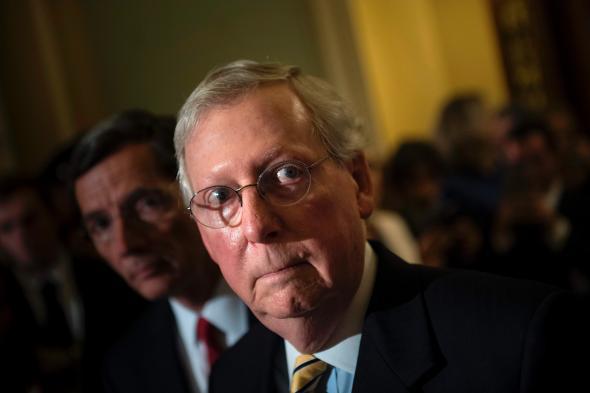Hours after narrowly voting to begin debating repeal of significant portions of Obamacare, the Senate voted down a Republican-backed overhaul of the health care system Tuesday night. The Better Care Reconciliation Act, with amendments by Sen. Ted Cruz (R-Tex.) and Sen. Rob Portman, R-Ohio, would have paved the way for the partial repeal and replacement of Obamacare, but it failed to meet the 60-vote threshold needed. The bill fell well short, garnering only 43 Republican votes, with nine members of the Republican caucus voting with Democrats. The BCRA needed 60 votes, rather than the simple majority needed under the rules of reconciliation, because neither amendment had been scored by the Congressional Budget Office, such that there was no clear indication of how much they would cost to implement.
This week, the Republicans are expected to try again and again and again. Expect the party to mount several, perhaps many, ambitious, and some not so ambitious, attempts to take down Obama’s signature health care law that expanded access to health insurance by expanding Medicaid, requiring more employers to provide coverage, and setting up federal exchanges to allow individuals without employer-based health care to purchase subsidized coverage. The next vote in the Senate will likely be held Wednesday on a similar version of a Republican-written ACA repeal that Obama, predictably, vetoed in 2015.
Tuesday night’s BCRA vote and Wednesday’s expected vote on repeal are largely for show at this point as neither was expected to pass from the outset. Barring a late come-to-Jesus moment, where the Republicans come up with a new bill that isn’t outright toxic to the people they represent, the latest, greatest hope for the GOP increasingly looks like a move that’s being called the “skinny repeal” option, which would remove the ACA’s mandates that individuals buy coverage and that employers with more than 50 employees provide coverage. “This ‘skinny repeal’ strategy would keep the overhaul effort alive but amount to a tacit acknowledgment that broader efforts to revise or repeal the law cannot succeed, even as Republicans control both Congress and the White House,” according to the Washington Post.
